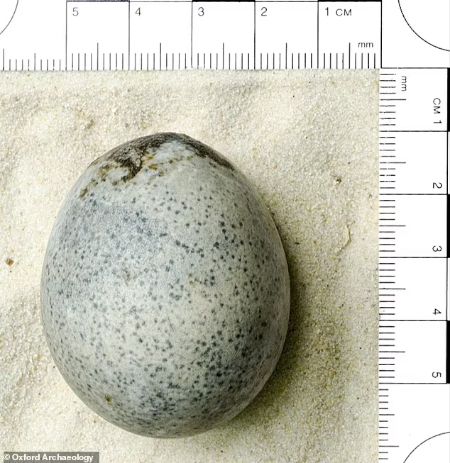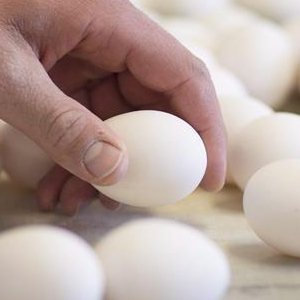This is really just a ‘fluff’ piece – a novelty post about a remarkable discovery by archeologists excavating an ancient Roman site near Oxford, UK. It’s a 1,700 year old egg that still has a liquid white and yolk. Imagine that!

So… The headline was playful, to say the least. But the archeological find in Alyesbury, just east of Oxford in Buckinghamshire, has raised some interesting questions…
The artifact in question
It’s a regular chicken egg, measuring approximately 4 cm x 5 cm / 1.6 in. x 2 in. That would make it a Grade A Large by today’s standards. Maybe, even an Extra Large. Anyway, it’s amazingly similar to the eggs we get from the supermarket every week.
The Roman egg was actually one of 4 exhumed by reseachers. Alas, the other three broke during removal from the damp pit in which they were found. Eye witness accounts say they released the unmistakable, gut wrenching aroma known as ‘rotten egg gas’.
But how did they stay so intact for so long?
A ‘freak’ preservation
Archeologist Dana Goodburn-Brown carried out a micro CT scan on the egg, which confirmed the contents were still liquid.
‘It was an exciting moment when we first saw the air bubble inside, and then decided to turn the egg and look again, to see if the bubble would move, which it did,’ she told MailOnline.
Goodburn-Brown brown confirmed it’s an extremely rare find, indeed. “Organic materials and liquids do not normally survive the depths of time unless in special circumstances, such as being sealed by clay or mud and no oxygen circulating. […] The waterlogged conditions at the Buckinghamshire archaeological site preserved the eggs in situ, as well as the nearby remains of a fragile wooden basket.”
Douglas Russell of London’s Natural History Museum declared it a ‘fascinating’ and ‘possibly unique’ find. He adds, it could have immense scientific import.
The Romans prized eggs
Eggs were more than just a food foe the Romans. They thought them to be symbols of fertility and rebirth, and harbingers of good luck. Oxford Archeology speculates that someone may have placed the eggs in a basket and lowered them into a Roman water well. The Romans may have originated the ‘wishing well’ tradition. So, that ‘someone’ might have been wishing to get rich – or pregnant.
My take
We all know eggs don’t last forever. Not in an edible state, anyway. But it’s interesting – to say the least – that not just the surviving one, but four remained physically intact for almost 2,000 years.
My point is simply this: We have such a reliable and abundant supply of eggs now-a-days that we tend to take them for granted. And we shouldn’t. Once reviled as unhealthy, the reputation of the egg as a food has been redeemed by a succession of peer-reviewed scientific studies since the Millennium.
We now know that dietary cholesterol intake is not directly connected with blood cholesterol levels. And we’ve always known that eggs are a proven, concentrated source of protein, essential vitamins and minerals.
Prevailing opinion today, among the experts, is that it’s perfectly safe to consume an egg a day, as part of a complete, balanced diet.
Next time you hold an egg in your hands… Take a moment to think about what a remarkable thing is is. And accord it the respect it deserves!
~ Maggie J.

